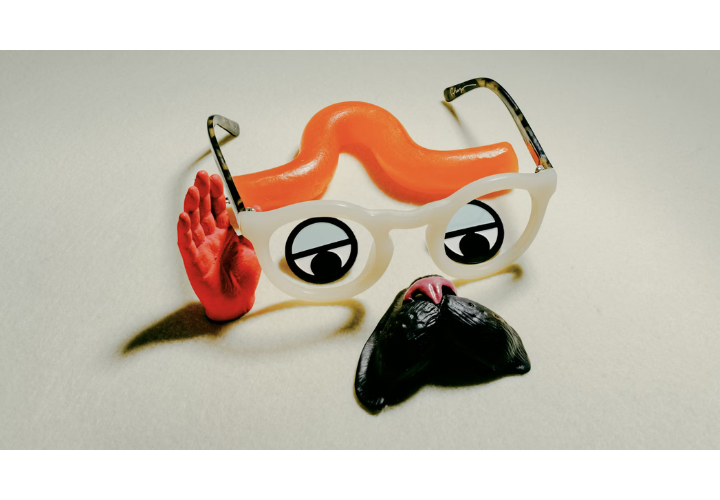
When we think of personal branding, the immediate association might be professionalism, expertise, or trustworthiness. However, in today’s world, one essential component of a strong personal brand often gets overlooked—humor. Incorporating humor into personal branding isn’t just about cracking jokes; it’s about humanizing your brand, fostering genuine connections, and standing out in a crowded market.
In this blog, we’ll explore how to effectively use humor to connect with your audience and balance it with professionalism to maintain your credibility.
Why Humor Works in Personal Branding
Using Humor to Connect with Your Audience
Balancing Humor and Professionalism
- Understand Your Audience
- Stay Authentic
- Choose Your Moments Wisely
- Avoid Offending Your Audience
- Keep It Light, Not Silly
How Humor Enhances Your Personal Brand
The Role of Humor in Professional Platforms
Why Humor Works in Personal Branding
Humor is a universal language. It breaks down barriers, builds rapport, and makes your content more memorable. Psychologically, humor creates a positive emotional response in your audience, which can enhance their perception of your brand. Studies have shown that people remember humorous content better and are more likely to engage with brands that make them laugh.
In personal branding, humor can make you more relatable. It showcases authenticity and approachability, allowing you to connect on a deeper level with your audience. While expertise is vital, demonstrating a sense of humor reminds people that you’re human—someone they can trust and engage with comfortably.
Using Humor to Connect with Your Audience
When done correctly, humor can enhance your personal brand in various ways:
1. Humanizing Your Brand: Humor can help soften the often rigid lines of professionalism, making your brand feel more personable. It shows that while you’re serious about your work, you don’t take yourself too seriously, making you approachable.
2. Building Emotional Connections: Humor evokes positive emotions, which can lead to stronger connections with your audience. People are more likely to engage with a brand that makes them feel good or entertains them.
3. Standing Out in a Crowded Market: In an era where consumers are inundated with information, humor can set you apart from competitors. Brands that make a lasting impression are often those that incorporate a lighthearted approach.
Balancing Humor and Professionalism
While humor is an effective tool for personal branding, there’s a fine line between being funny and losing your credibility. Striking the right balance between humor and professionalism is key to ensuring that your brand remains respected and trusted. Here’s how to maintain that balance:
1. Understand Your Audience
The first rule of incorporating humor into your personal brand is to know your audience. What makes them laugh? What might they find inappropriate? Consider the demographics, culture, and context of your audience before injecting humor. What works for a tech startup might not work for a law firm. Tailor your approach to suit the preferences of your target market.
2. Stay Authentic
Humor should reflect your genuine personality. Forced humor can backfire, making your brand seem disingenuous. If sarcasm or witty humor comes naturally to you, use that. If you prefer light-hearted jokes, stick with what feels authentic. Authentic humor builds trust, whereas contrived jokes can alienate your audience.
3. Choose Your Moments Wisely
Not every situation calls for humor. Timing is crucial. For example, during a crisis or when addressing sensitive topics, it’s best to lean into empathy rather than jokes. Always assess the situation to ensure humor is appropriate.
4. Avoid Offending Your Audience
In a world of diverse opinions and perspectives, it’s easy to unintentionally offend. Steer clear of controversial, political, or offensive humor that could alienate part of your audience. Remember, the goal is to connect, not divide.
5. Keep It Light, Not Silly
Humor should be used to complement your professionalism, not overshadow it. Light-hearted jokes or witty comments can enhance your communication without compromising the seriousness of your message. For example, a playful tagline at the end of a blog or social media post can add charm, but an entire blog filled with jokes might dilute your expertise.
How Humor Enhances Your Personal Brand
1. Increases Engagement: Humor is a powerful tool for driving engagement. Whether it’s a witty tweet or a clever anecdote in your blog, humorous content tends to get more likes, shares, and comments.
2. Fosters Loyalty: Brands that make their audience smile create a sense of loyalty. People are more likely to follow and support a brand they enjoy interacting with.
3. Encourages Virality: Humorous content has the potential to go viral. Think about memes, funny videos, or clever social media posts that get shared across platforms. If humor is aligned with your brand voice, it can drastically increase your online presence.
4. Boosts Approachability: People want to work with those they feel comfortable with. Humor softens the edges of formality and can help attract new clients or collaborators who feel drawn to your personable approach.
The Role of Humor in Professional Platforms
Even in traditionally serious platforms like LinkedIn, humor can play a role. A well-placed joke or humorous story can make your posts stand out amidst a sea of corporate updates. However, on such platforms, humor needs to be more subtle and aligned with your industry norms. For example, if you’re in marketing, a clever pun about ad spend could work, but if you’re in finance, humor might take the form of a witty observation about market trends.
Conclusion
Humor can be an invaluable asset to your personal brand if used wisely. It humanizes your professional persona, enhances audience engagement, and helps you stand out in competitive markets. However, balance is key. Always be mindful of your audience and the context in which you are using humor. Done right, humor can transform your personal brand into something memorable, relatable, and ultimately more successful.




Leave a Reply